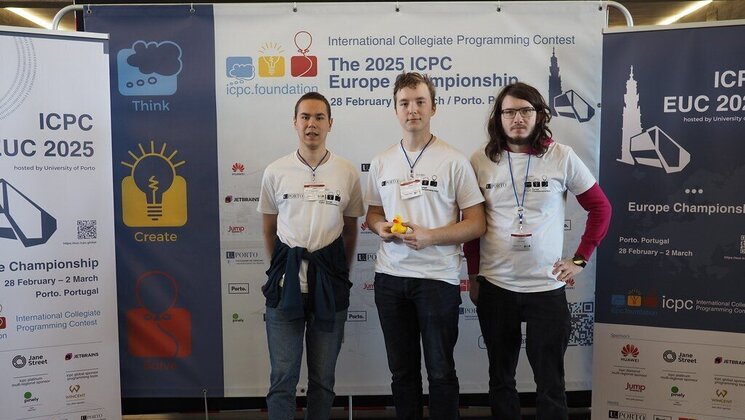-
Faculty of Arts and HumanitiesJakobi 2, r 116-121 51005 Tartu linn, Tartu linn, Tartumaa ESTJakobi 2 51005 Tartu linn, Tartu linn, Tartumaa ESTJakobi 2, IV korrus 51005 Tartu linn, Tartu linn, Tartumaa ESTJakobi 2, III korrus, ruumid 302-337 51005 Tartu linn, Tartu linn, Tartumaa ESTÜlikooli 16 51003 Tartu linn, Tartu linn, Tartumaa ESTLossi 3 51003 Tartu linn, Tartu linn, Tartumaa ESTÜlikooli 18 50090 Tartu linn, Tartu linn, Tartumaa ESTPosti 1 71004 Viljandi linn, Viljandimaa ESTJakobi 2 51005 Tartu linn, Tartu linn, Tartumaa ESTJakobi 2 51005 Tartu linn, Tartu linn, Tartumaa ESTFaculty of Social SciencesLossi 36 51003 Tartu linn, Tartu linn, Tartumaa ESTJakobi 5 51005 Tartu linn, Tartu linn, Tartumaa ESTLossi 36, ruum 301 51003 Tartu linn, Tartu linn, Tartumaa ESTNarva mnt 18 51009 Tartu linn, Tartu linn, Tartumaa ESTNäituse 2 50409 Tartu linn, Tartu linn, Tartumaa ESTNäituse 20 - 324 50409 Tartu linn, Tartu linn, Tartumaa ESTLossi 36 51003 Tartu linn, Tartu linn, Tartumaa ESTRaekoja plats 2 20307 Narva linn, Ida-Virumaa ESTRingi 35 80012 Pärnu linn, Pärnu linn, Pärnumaa ESTLossi 36 51003 Tartu linn, Tartu linn, Tartumaa ESTLossi 36 51003 Tartu linn, Tartu linn, Tartumaa ESTFaculty of MedicineRavila 19 50411 Tartu linn, Tartu linn, Tartumaa ESTBiomeedikum, Ravila 19 50411 Tartu linn, Tartu linn, Tartumaa ESTNooruse 1 50411 Tartu linn, Tartu linn, Tartumaa ESTL. Puusepa 1a 50406 Tartu linn, Tartu linn, Tartumaa ESTL. Puusepa 8 50406 Tartu linn, Tartu linn, Tartumaa ESTRavila 19 50411 Tartu linn, Tartu linn, Tartumaa ESTUjula 4 51008 Tartu linn, Tartu linn, Tartumaa ESTRavila 50411 Tartu linn, Tartu linn, Tartumaa ESTRavila 19 50411 Tartu linn, Tartu linn, Tartumaa ESTFaculty of Science and TechnologyVanemuise 46 - 208 51003 Tartu linn, Tartu linn, Tartumaa ESTNarva mnt 18 51009 Tartu linn, Tartu linn, Tartumaa ESTRiia 23b/2 51010 Tartu linn, Tartu linn, Tartumaa ESTRavila 14a 50411 Tartu linn, Tartu linn, Tartumaa ESTNarva mnt 18 51009 Tartu linn, Tartu linn, Tartumaa ESTRiia 23, 23b - 134 51010 Tartu linn, Tartu linn, Tartumaa ESTObservatooriumi 1 61602 Tõravere alevik, Nõo vald, Tartumaa ESTNooruse 1 50411 Tartu linn, Tartu linn, Tartumaa ESTJ. Liivi tn 2 50409 Tartu linn, Tartu linn, Tartumaa ESTVanemuise 46 51003 Tartu linn, Tartu linn, Tartumaa ESTVanemuise 46 51003 Tartu linn, Tartu linn, Tartumaa ESTArea of Academic SecretaryLossi 3 51003 Tartu linn, Tartu linn, Tartumaa ESTUppsala 6, Lossi 36 51003 Tartu linn, Tartu linn, Tartumaa ESTArea of Head of FinanceÜlikooli 17 51005 Tartu linn, Tartu linn, Tartumaa ESTArea of Director of AdministrationÜlikooli 18A (III korrus) 51005 Tartu linn, Tartu linn, Tartumaa ESTÜlikooli 18, ruumid 102, 104, 209, 210 50090 Tartu linn, Tartu linn, Tartumaa ESTArea of Vice Rector for DevelopmentNarva mnt 18 51009 Tartu linn, Tartu linn, Tartumaa ESTVanemuise 46 51003 Tartu linn, Tartu linn, Tartumaa ESTLossi 25 51003 Tartu linn, Tartu linn, Tartumaa ESTArea of RectorArea of Vice Rector for Academic AffairsUppsala 10 51003 Tartu linn, Tartu linn, Tartumaa ESTÜlikooli 18b 51005 Tartu linn, Tartu linn, Tartumaa ESTArea of Vice Rector for ResearchW. Struve 1 50091 Tartu linn, Tartu linn, Tartumaa EST
New EU project to unlock the potential of genomics for healthcare, research and innovation

On 17 November, European Genomic Data Infrastructure (GDI) project kicked off in Brussels. The 4-year project of €40 million brings together a consortium of partners from 20 European countries and two infrastructure organisations (BBMRI and EMBL) to realise the 1+MG initiative’s ambition.
The 1+MG initiative’s (2018-2027) goal is to enable secure access to genomics and corresponding clinical data across Europe for better research, personalised healthcare and health policymaking. The Beyond 1 Million Genomes (B1MG) project (2020-2023) develops guidelines for implementing the 1+MG initiative and creating blueprints and recommendations for federated networks of genomic data. Building on the preparatory work of 1+MG working groups and the B1MG project, the GDI project starts the scale-up and sustainability phase of the 1+MG initiative.
The GDI project will deploy sustainable and secure infrastructure for a multitude of genomic and related phenotypic and clinical datasets across Europe with the goal of unlocking a data network of over one million human genome sequences for research and clinical reference. This will create unprecedented opportunities for transnational and multi-stakeholder actions in personalised medicine for common, rare and infectious diseases. Authorised data users, such as clinicians, researchers and innovators, will be able to advance their understanding of genomics for more precise and faster clinical decision-making, diagnostics, treatments and predictive medicine and for improved public health measures to benefit European citizens, healthcare systems and the overall economy.
Estonia has committed to becoming operational in the European network by the end of 2026. As part of the GDI, the Ministry of Social Affairs will work on finding long-term solutions for long-term sustainability. The University of Tartu’s Institute of Computer Science and Genomics will deploy the infrastructure considering the use-case and end-user needs. There will be a close collaboration with the Genetics and Personalized Medicine Clinic of Tartu University Hospital, the Health and Welfare Information Systems Centre (TEHIK) and the 1+MG National Mirror Group of Estonia.
Serena Scollen, the GDI Project Coordinator and Head of the ELIXIR Human Genomics and Translational Data team, spoke of the importance of having an infrastructure for genomic data by saying that genomes will soon be generated more routinely as part of healthcare. To realise the full promise of genomics and its implementation into healthcare, it is critical to facilitate research and innovation and integrate findings into the clinic and healthcare. “One of the biggest challenges we face is the lack of infrastructure - needed to support the discovery, access, sharing and analysis of human genomics data on a massive scale,” said Scollen. She added that by working together, countries will be able to deploy infrastructure to facilitate secure cross-border data access. Ultimately the benefit will be for the citizens of Europe and, through shared learnings and improved healthcare, citizens globally.
The new GDI project, coordinated by ELIXIR, is jointly funded by the European Commission under the Digital Europe Programme and through co-funding from participating Member States. In the area of health, the Digital Europe Programme aims to support the creation of elements of the European Health Data Space. More information about the project can be found here.
Read more similar news






